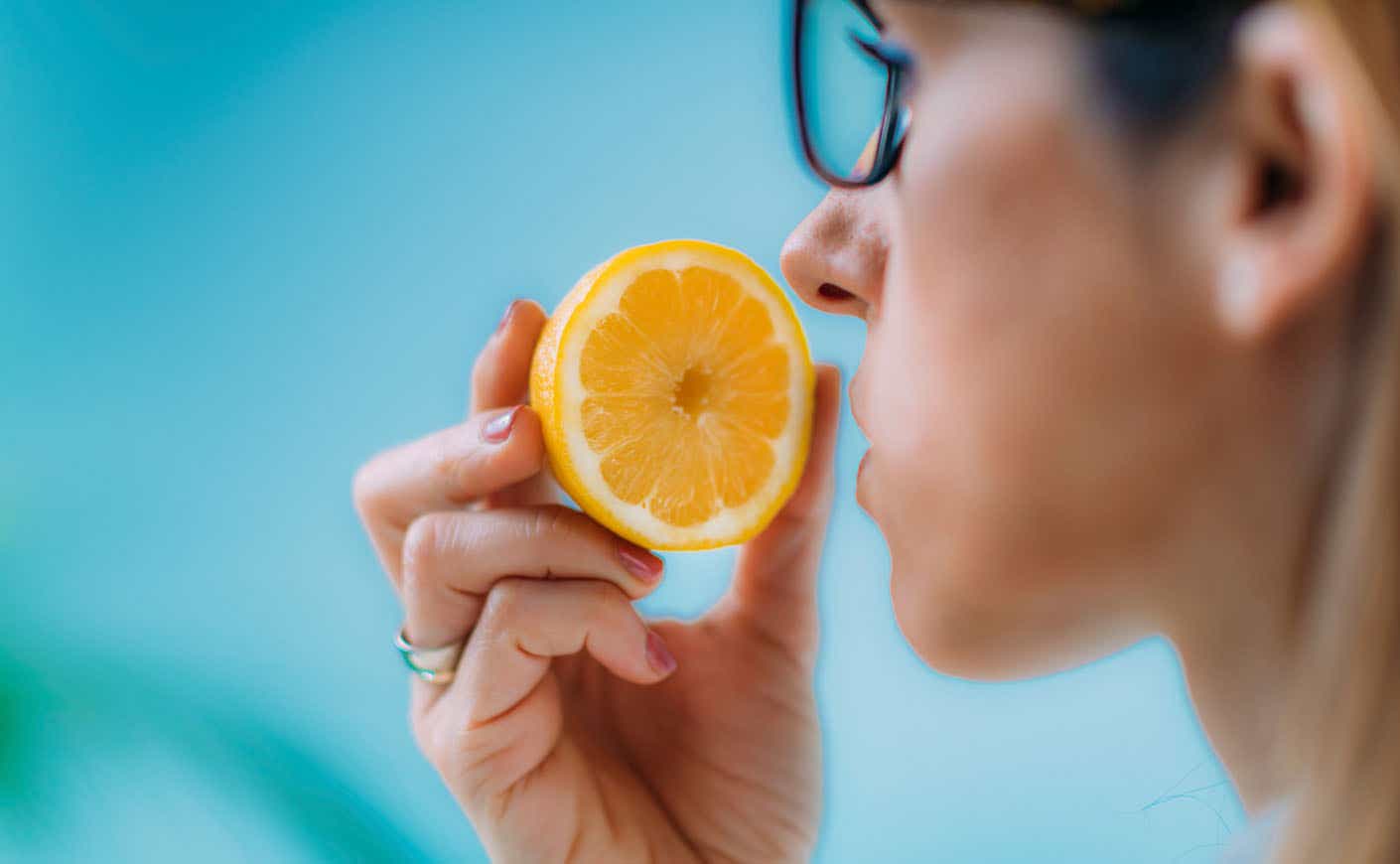KCM’s own Rachel Uda explores losing her sense of smell after a bout with Covid-19 and what treatments may help
In April, I exhibited a now familiar progression of symptoms. First fatigue and fever, followed by intense muscle soreness, sinus congestion and then a shortness of breath. It wasn’t until a few days later when most of my other symptoms had faded that I realized I’d also lost my sense of smell.
I’m one of the many people who lost their sense of smell after contracting Covid-19. Many recover it in the weeks after their diagnosis, but for some people like myself, our senses of smell remain impaired even months later.
For me, some scents just no longer smell like they once did, while I can’t detect others at all. My moisturizers and makeup products, which used to smell distinctly of lavender or shea butter or vanilla, now all smell the same sickly sweet. Last week, my boyfriend and I excavated a shamefully old vat of lentil stew from the back of our fridge. He recoiled when he removed the lid, describing its odor as “gag-inducing” — I couldn’t smell a thing.
Researchers are still trying to determine how commonly those infected with Covid-19 develop anosmia, a complete loss of smell; hyposmia, a diminished sense of smell; or parosmia, a sense of smell that’s distorted. They’re also trying to pin down a timeline for recovery.
Surveys have found that 60% to more than 80% of Covid-19 patients noticed some change in their sense of smell, according to Dr. Evan Reiter, a professor at Virginia Commonwealth University School of Medicine. About two-thirds of those people seem to regain their smell within weeks to a month.
Many of the rest are reporting experiences similar to my own, according to Reiter, who’s conducting his own survey. Things smell different to them and some have reported they’ve noticed phantom odors — like detecting a whiff of gasoline — when none are present.
As cases continue to pile up in the U.S., researchers like Dr. Jay Piccirillo, a professor at Washington University School of Medicine, are expecting more and more people to suffer from longstanding anosmia. By one estimate, there could be up to 500,000 new cases of chronically diminished sense of smell this year.
Unfortunately, according to Piccirillo, there’s no universally effective treatment for the condition.
That’s partly because anosmia caused by viral infection wasn’t all that common before the pandemic. Piccirillo and others studying smell disorders had struggled to even find participants to fill the ranks of their clinical trials — up until last year.
“In sort of a macabre way, Covid-19 has opened up a lot of opportunities for research because of the sheer number of patients,” he said.
Piccirillo’s now searching for possible treatments and is running two clinical trials. One looks at the effects of a nasal rinse dosed with theophylline, a drug often used to treat asthma. There’s some research that suggests theophylline when delivered directly into the nose can help stimulate nerve growth, which may help patients recover some sense of smell, Piccirrillo said.
Volunteers will be asked to dissolve a capsule with the drug into a neti pot and pour that solution into their nose daily.
The second trial will test the effectiveness of olfactory training, an experimental process to retrain your brain to detect different odors. Over the course of a few weeks, participants will take a whiff of a collection of essential oils which smell of rose, lemon and other aromas, at least once a day.
It’s a simple exercise that’s been studied before, though Piccirillo’s trial pairs each scent with a photo of what the oil smells like and allows the participant to choose from 34 aromas on which to train. So far, the most requested scent is smoke.
“We were shocked,” Piccirllo said. “People are really worried about how this could impact their safety.”
Just last week, a family who had lost their sense of smell nearly perished in a house fire because they couldn’t smell the smoke. Piccirillo said some of his patients are concerned about not being able to smell natural gas or worried about not being able to tell when to change their infant’s diapers. And of course, there are the sommeliers and chefs, like Justin Burke, whose careers have been upended because of the virus.
Burke, a pastry chef and food writer based in South Carolina, told KCM he spiraled into depression after losing his sense of smell last summer.
“You could have been boiling and reducing vinegar, and I would not have smelled it,” he said.
It devastated his refined palate, and he lost work as a result. For months, “everything tasted muted” until one day in late November he bit into an egg roll and the spice all at once knocked him back, Burke said.
Piccirillo is cautiously optimistic that with the nation’s attention turned to this issue, there will be some sort of “breakthrough” in the near future, though it may not be a cure, he said.
“In medicine, we really need to do a better job to find something to help all these people,” he said.
Written and reported by Rachel Uda.









